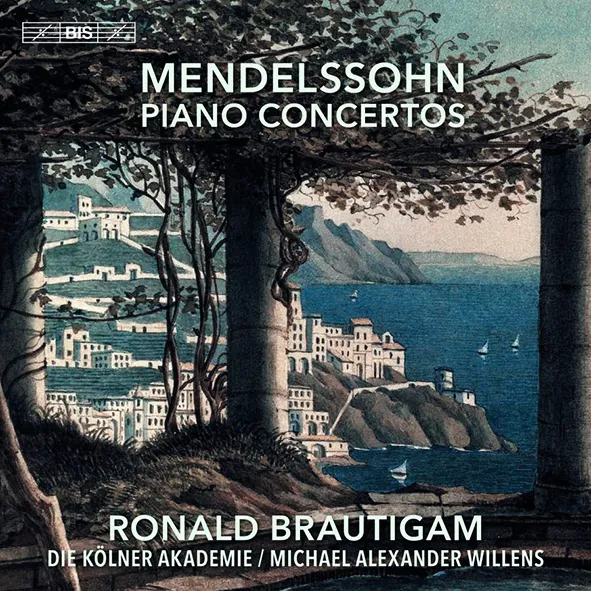
Mendelssohn Piano Concertos; Rondo brillant; Capriccio brillant; Serenade und Allegro giojoso Ronald Brautigam (piano); Die Kölner Akademie/Michael Alexander Willens BIS BIS-2264 (hybrid CD/SACD) 74:08 mins
Mendelssohn’s two piano concertos were popular throughout the 19th century, but not many pianists seem willing to tackle them these days. That’s a pity, because although their brilliance is sometimes superficial, they are by no means short of memorable ideas. Both works are stormy pieces in minor keys, and Mendelssohn characteristically fuses the three movements of the First Concerto into an interlinked whole, with a fanfare joining the first two movements together, and returning to introduce the finale. In addition, the finale itself contains a reminiscence of the lyrical second subject from the opening Allegro.
Ronald Brautigam uses a copy of a Pleyel piano of 1831 – just a year before the First Concerto was composed – and he skates over its keys with dazzling ease. Perhaps there’s more poetry in the classic recording by Murray Perahia with the Academy of St Martin in the Fields (on Sony, now available as a download or as part of a 15-CD set The Complete Analogue Recordings); but in Perahia’s hands the middle movement is more like an Adagio religioso than the more flowing Andante it ought to be. On the other hand, the slow movement of the Concerto No. 2 is a genuine Adagio, and here Brautigam isn’t sufficiently serene. The Concertos are supplemented by Mendelssohn’s single-movement showpieces for piano and orchestra. The last of them, a Serenade und Allegro giojoso, was new to me, and a welcome discovery, though the melancholy serenade leaves more of an impression than the skittish Allegro. Again, Brautigam negotiates the cascades of notes with admirable fluency, and he’s well supported by Michael Alexander Willens and the Cologne Academy.
Misha Donat